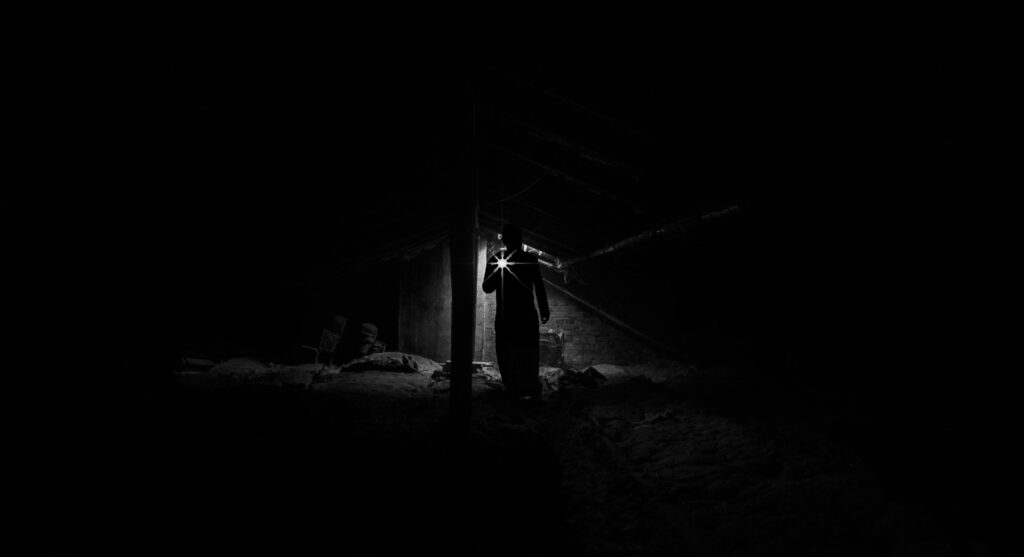Dramatic irony is a powerful literary device that occurs when the audience possesses knowledge that certain characters do not, creating tension and engagement. This technique is prevalent across various forms of storytelling, including literature, theater, and film.
Understanding Dramatic Irony
At its core, dramatic irony involves a situation where the audience is aware of critical information that the characters are oblivious to. This discrepancy can lead to suspense, humor, or tragedy, depending on the context. For instance, in Sophocles’ “Oedipus Rex,” the audience knows that Oedipus himself is the cause of Thebes’ suffering, while he remains unaware, intensifying the tragic outcome.
Types of Irony: A Brief Overview
To fully grasp dramatic irony, it’s essential to distinguish it from other forms of irony:
- Verbal Irony: When a character says something but means the opposite, often resembling sarcasm. For example, complimenting a messy room by saying, “Wow, so tidy in here!”
- Situational Irony: When the actual outcome of a situation is the opposite of what was expected. An example is a fire station burning down.
Dramatic irony differs in that it relies on the audience’s superior knowledge to create tension or humor.
Examples of Dramatic Irony in Literature
Classic Literature
- “Romeo and Juliet” by William Shakespeare: The audience knows Juliet is alive, but Romeo believes she is dead, leading to his tragic decision.
- “Oedipus Rex” by Sophocles: Oedipus seeks to find the cause of Thebes’ plague, unaware that he himself is the culprit.
Contemporary Literature
- “The Hunger Games” by Suzanne Collins: Readers are aware of Katniss’s complex feelings toward Peeta, while he remains oblivious, adding depth to their interactions.
- “Atonement” by Ian McEwan: The audience understands the gravity of Briony’s false accusations long before the characters do, heightening the story’s emotional impact.
Examples of Dramatic Irony in Film
Classic Films
- “Jaws” (1975): Viewers are aware of the lurking shark, while the beachgoers remain unsuspecting, creating suspense.
- “Psycho” (1960): The audience knows about Norman Bates’ dual identity, while the characters do not, leading to shocking revelations.
Modern Films
- “The Sixth Sense” (1999): The audience eventually realizes that Dr. Malcolm Crowe is unaware of his own death, a fact that adds depth to the narrative.
- “Get Out” (2017): Viewers understand the sinister intentions of the Armitage family long before the protagonist does, building tension.
The Role of Dramatic Irony in Storytelling
Dramatic irony serves several purposes in storytelling:
- Building Suspense: Knowing more than the characters can make the audience anxious about impending events.
- Enhancing Engagement: It encourages viewers or readers to become more invested, as they anticipate the moment when characters will discover the truth.
- Adding Depth: It can provide layers of meaning, as the audience contemplates the implications of the characters’ ignorance.
Crafting Dramatic Irony: Tips for Writers
To effectively incorporate dramatic irony into your writing:
- Plan Carefully: Ensure that the audience’s knowledge enhances the story without causing confusion.
- Maintain Balance: Provide enough information to the audience to create irony, but not so much that it spoils the narrative.
- Use Sparingly: Overuse can diminish its impact; employ it where it serves the story best.
Common Questions About Dramatic Irony
- What is the difference between dramatic irony and situational irony? Dramatic irony involves the audience knowing more than the characters, while situational irony occurs when the outcome is the opposite of what was expected.
- Can dramatic irony be used in comedy? Yes, it is often used to create humorous situations where the audience knows something that leads to comedic misunderstandings among characters.
- Is dramatic irony only used in tragedies? No, it is a versatile device used across genres, including comedy, horror, and drama.
Conclusion
Dramatic irony is a timeless storytelling tool that, when used effectively, can deepen the audience’s connection to the narrative, enhance suspense, and add layers of meaning. By understanding and applying this device, writers can craft compelling stories that resonate with readers and viewers alike.


